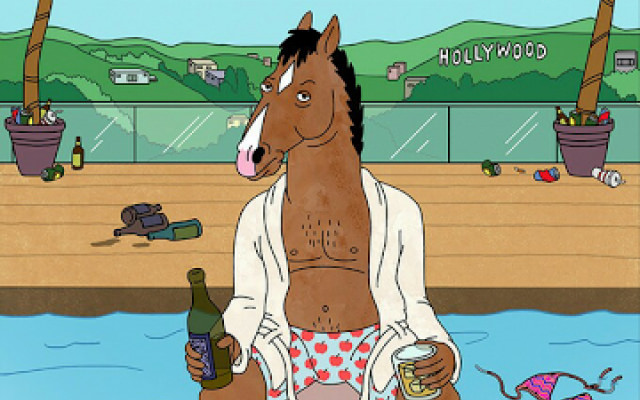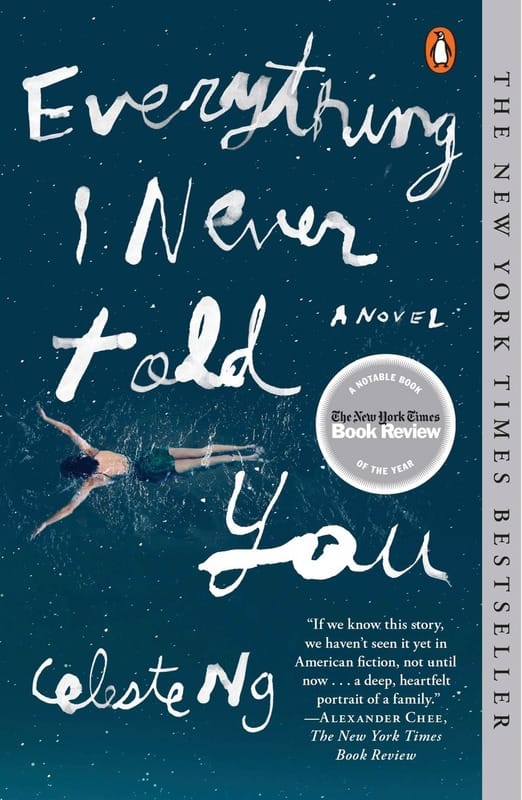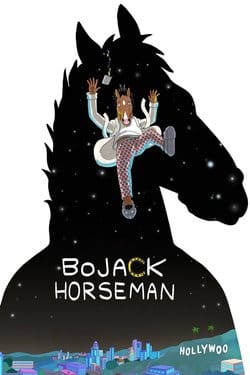|
The Breadcrumbs widget will appear here on the published site.
Media for My Anxiety, 2016I didn’t have a good year. That’s not to say good things didn’t happen to me or that I didn’t enjoy myself at times. This was very much a year where a lot of things went wrong or led to disappointment. I was screwed over on the employment front and ended up leaving two jobs. I suffered creatively and produced very little. My health took a toll for the worst at times, including vomiting from stress, minor anxiety attacks, and nights where I could barely sleep eight straight hours. It was a year that led to me seeking a therapist and taking over-the-counter sleep medication. For someone in their early 20’s, this was not very good. It’s the kind of year that forces you to reflect on the decisions you’ve made your entire life, and makes you curse the notion of hindsight. For everything that went well in my favor, three more things popped up to make me hate decisions I made and added to my self-loathing. I am trying to work through most of these issues, and plan on making 2017 a year of reinvention by moving to a new town, hopefully finding a newer, more stable job, and trying new things that keep me creatively engaged and emotionally stable. While I faced all these issues, this was a year that did lead me to continually find media that resonated with my issues and helped me process a lot of these feelings. There were three that stood out: a book I picked up on a whim, a figure I found a new way to relate to, and a series that I dove into at the right time. These are three strange pieces of media to write about in one piece, but they mattered greatly to me, and I feel they’ll continue to matter in the years to come. Everything I Never Told You by Celeste Ng I was walking around a Barnes and Noble when I found Celeste Ng’s 2014 bestselling novel. I had recognized Ng’s name from some social media work I was doing, and decided to check the book out. The book is set in 1977 in a small college town in Ohio. The daughter of a mixed-race family is found dead in a lake, and the book details the months that led to her death and the fallout it has on her family. The book is one of my favorite books that I read this year, with themes of racism, feminism, identity, and purpose. There are a lot of characters to relate and sympathize with, but it was Lydia, the deceased daughter, who stood out to me the most. Lydia is the middle child of a Chinese-American family in a small town in the 1970’s, something that puts her on the fringe immediately. However, it’s in her home life that warps her into the lonely and depressed girl she is. Her family, her mother especially, look at her as the favorite; the one who will become a doctor and be something great. They see her as the beautiful and popular darling of the town. In actuality, Lydia has no friends, doesn’t want to be a doctor, and has wrestled with feeling useless and directionless since she was six years old. One of the scenes that stood out to me was when her mother, Marilyn, goes to look at Lydia’s diary after her death and sees that Lydia never wrote in it, nor any of the other diaries Marilyn has been gifting her since she was a young girl. As I read this book, I found the Lydia chapters to be the most engaging. Lydia was a sad, lonely girl, and she was completely aware of it. All these pressures and burdens have only left her feeling alienated and unsure how to make it through the world. What really hurts is that none of this is her fault, but she’s also left with no clue how to escape. She’s afraid to make a stand, avoids letting her issues be known, and doesn’t really have anyone to talk to. Even those she is close to, like her brother, Nath, can’t be there for everything, leaving her feeling even more trapped. What helped this book really stand out for me was seeing the positives in Lydia and what she could do. She may not have been smart enough to be a doctor, but she was kind and friendly. When she finds someone to open up to, she is able to relax more. Sure, Lydia’s life ends before she can really do anything about these issues, but the point I took away was that Lydia wasn’t totally hopeless. At sixteen, we all feel somewhat hopeless in our situations and worry that what we are then will be all we will ever be. Through Lydia, I saw a girl very much like how I was in high school and still felt like today, but who told me it was okay to be upset and stressed, but to not let it completely dominate my life. Lydia knew she had to get out of her situation after a big enough push, much like I’ve learned to leave a job that I hated and decided to leave a town that has no options for me. All I can hope for is that the choices I make do lead to something better and that this time becomes something to merely look back on and view as something I conquered. Katya Zamolodchikova Last year, I was introduced to a character named Ekaterina Petrovna Zamolodchikova, or Katya, for short. She was a contestant on RuPaul’s Drag Race Season 7, and emerged as my favorite contestant of the series. Played by Boston native Brian McCook, Katya was a Russian bisexual transvestite hooker who was the sweatiest woman in show business and could do slow splits like it was nothing. Since Season 7, she went on tour with the show, premiered a web show with Season 7 castmate Trixie Mattel called UNHhhh, and later returned to television to compete on RuPaul’s Drag Race All Stars 2. While Katya was known for her zaniness, her surreal outfit descriptions, and her fondness for the movie Contact, in both of her seasons, Katya was known for a notable human element. Katya admitted to having issues with anxiety in the past, something that led to drug addiction and other attempts to suppress these feelings. Although clean now, Katya presented the struggles of staying sober in highly stressful scenarios. Despite being hilarious and beloved by millions, Katya’s time in Season 7 was marked by self-doubting and second guessing. It seemed hard to believe considering how well she did in the season (she placed fifth overall and won the fan favorite award Miss Congeniality), but as she showed in her web series RuGrets, most of her time was spent feeling like she was failing and making a mess of herself. It seemed like Katya was the Russian Pagliacci of the drag world, but when she returned for All Stars 2, she had learned to adapt form her time in Season 7. She wasn’t perfect, getting notably depressed when up for elimination following the “Baddest Bitches in Herstory” challenge, but she had improved considerably. As she told her mother when her mother appeared for the makeover challenge, this time she was having fun and wasn’t as stressed as before. It translated to her challenges, particularly her wacky Bjork impersonation and her amazing ad for Krisis Kontrol (which desperately needs to be a real product). Katya may not have won the season, but she came out better for it. This was an artist who had seized a golden opportunity and made the most of it. It wasn’t easy, but by sticking with it, forming important bonds, and never losing sight of what made Katya Zamolodchikova so great (most likely Herpesin). What she showed me was that anxiety can’t stand in the way of opportunities, and that forming the right support system can be the best way to work through anxiety. It’s because of appearances like this that I made Katya my phone background twice and look forward to every episode of UNHhhh in hopes she finds a new way to work Contact into whatever she and Trixie are talking about. Bojack Horseman On the surface, this was the worst show to watch while depressed. A Netflix animated series about a washed-up actor desperately trying to reclaim his former glory and continually failing seemed like one of the things that could only affirm how lousy I had felt this year. However, a lot of people I knew said this show changed them for the better, and also made them realize a lot about themselves. The show had aired its third season this year, so I finally binged the series. And yeah, this might be one of my favorite TV series ever. This was a show that was not afraid to make it clear the characters were responsible for their own mistakes and suffering, but also left them sympathetic enough that you could see them as tragic. Bojack, in particular, is an asshole who only manages to sabotage his relationships and career prospects. However, he has to live with every single decision he makes, making it clear that he is worse off for every wrong choice he makes. He makes a selfish choice, but nine times out of ten, he’s the only one to suffer for it. This is a show that really shows how living in the past or thinking too much about hindsight isn’t healthy. Bojack and other characters cling to these ideas and beliefs despite everything saying they shouldn’t. Bojack thinks life will resolve things like a sitcom since he was on one for nine years. Princess Carolyn thinks that managing other people’s lives will somehow straighten hers out. Mr. Peanutbutter needs things to fit his idealistic view or he falls apart. Diane needs to believe her writing matters, even when she finds it hard to accept that not everyone thinks like her (I think Diane was the character I most related to). Todd has to deal with his goofiness getting in the way of any sort of stability in his life. They all have sympathetic motivations and goals, but one thing or another pops up to uproot any status quo they think they find. But what made Bojack Horseman such a good show for me is that it made me want to create. This was a series with incredible writing, complex characters, and extremely tight continuity. It has probably some of the best depictions of depression and anxiety in any form of media, but it’s also set in a world with anthropomorphic animals and bizarre background jokes and sets. Why am I, someone with a lot of free time and feelings he needs to express, not creating anything as interesting as this? It makes me want to go full steam ahead with ideas and stories while I get myself together, and it also makes me want to talk about these sorts of things with other people so that I can have conversations, I can share in perspectives, and that I can grow from all of these. So while I don’t know how 2017 will go for me or if any of the stuff I have planned with come to fruition, I want to believe I can change. I want to think of things like Everything I Never Told You, Bojack Horseman, and Katya, and use these to compare my feelings and life to. I’m already of thinking of so much I want to do, but also find a way to accept my anxiety as a natural part of my life. I don’t want it to control me, but I want to be able to deal with it and in a healthy way. With that, I’ll just sing Katya’s verse in “Read You, Wrote You” to myself as I wait for Season 4 of Bojack Horseman and start writing projects with Everything I Never Told You as inspiration. That should make for an interesting year. CommentsComments are closed.
|
|











